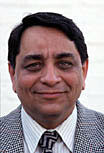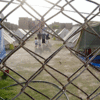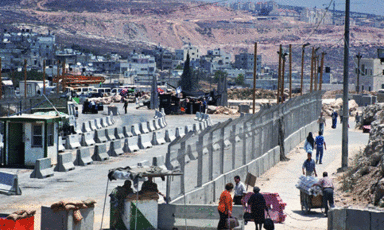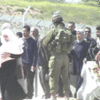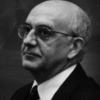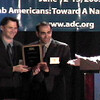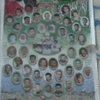
Nablus: Shubi family - demolished and killed
6 May 2002
Since the outbreak of the second Intifada posters of Palestinian martyrs are common on the walls of Palestinian towns. In Nablus, there is one poster that people stop to stare at. On 6 May 2002, EI’s Arjan El Fassed visited Nablus and filmed the devastation left behind after Israeli forces ended their brutal invasion of April 2002. This particular footage includes the martyrs’ poster of the al-Shubi family. Read more about Nablus: Shubi family - demolished and killed

